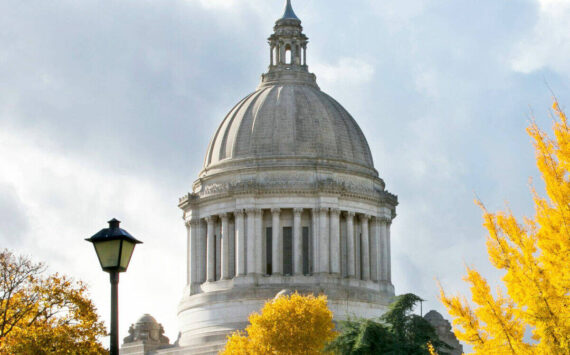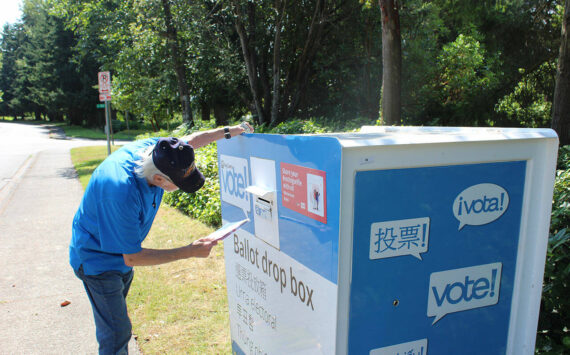Gov. Chris Gregoire Monday presented a supplemental budget that calls for more than $2 billion in spending cuts, reductions to local government revenue sharing and fund transfers to leave a $600 million reserve. The governor also recommended several revenue options that, if approved by voters and the Legislature, would prevent cuts to programs that benefit students, vulnerable populations and the public’s safety.
“I never thought we’d still be doing this — still cutting the fabric of Washington three years after the start of the Great Recession,” Gregoire said. “Once again, I am presenting an all-cuts supplemental proposal to carve another huge portion from the budget — a budget we’ve already cut by $10.5 billion in the past three years. Our state government is smaller, leaner and sadly, meaner to Washingtonians who depend on services that the private sector does not provide. This latest proposal includes more devastating cuts to education and public safety, and services for seniors, citizens with developmental disabilities and those with mental illness.”
Gregoire’s budget proposal includes significant cuts and reductions:
— More than $500 million from education programs — reductions that would shorten the K-12 school year, reduce levy equalization payments, and cut state funding for colleges and universities by another 13 to 17 percent;
— More than $690 million from health and human service programs — cuts that would eliminate the state food assistance and Disability Lifeline programs, close one residential habilitation center and reduce personal care services for some of the state’s most vulnerable individuals; and
— Nearly $72 million from the Department of Corrections — reductions that would allow the early release of some offenders, shorten the length of offender supervision and reduce chemical dependency programs by 50 percent.
Recognizing that these cuts would do serious damage to the state’s safety net and jeopardize our students’ future, Gregoire also asked the public and the Legislature to consider several revenue options for “Building a Better Future.” She recommended the Legislature allow voters to decide whether to approve a temporary one-half cent sales tax increase. If approved, the increase would raise $494 million through June 30, 2013, and expire July 1, 2015. The additional revenue would prevent cuts to critical services in three specific areas:
Invest in education
— Stop a $100 million cut that would shorten the K-12 school year from 180 to 176 days;
— Stop a $152 million reduction to the state’s levy equalization program, which provides financial support to school districts in property poor counties; and
— Stop a $160 million reduction in state support for the state’s six public four-year colleges and universities, and 34 community and technical colleges.
Protect public safety
— Stop the early release of offenders assessed at low to moderate risk of reoffending, including sex offenders; and
— Maintain the length of post-prison community supervision for all offenders.
Preserve developmental disability and long-term care services
— Prevent 1,300 individuals from losing all personal care services and restore service hours for some of the most vulnerable clients whose care hours have been reduced over the past three years;
— Restore more than $13 million in home care and residential provider rates; and
— Invest more than $15 million in programs that keep elderly and developmentally disabled individuals in their own homes and with their families.
“After three years of cutting, now is the time to invest in a better future for all Washingtonians — for all of us to take responsibility and yes, spend a half-penny more,” Gregoire said. “I believe Washingtonians will stand with me. I believe they are tired of tearing down the services our parents and grandparents built — services that reflect the special values of Washington state.”
Gregoire also asked the Legislature to consider a series of revenue alternatives worth nearly $341 million, some that could be passed with a simple majority and others with a two-thirds vote. The governor put forward a prioritized list of cuts recommended in her budget that she believes should be restored first if the Legislature approves new revenue. Those items include:
— $49 million cut that would remove the remaining 35,000 low-income people from the Basic Health Plan;
— $7.2 million cut to TANF/WorkFirst grants that help low-income families with children with cash assistance;
— $95 million cut that would eliminate the Disability Lifeline medical program for 20,000 low-income individuals;
— $8.1 million cut that would suspend the state Work Study program, which provides financial aid to 7,600 students in higher education; and
— $2.9 million cut to parole services for 400 youth offenders.
For more information, visit http://www.ofm.wa.gov/budget12/default.asp .




